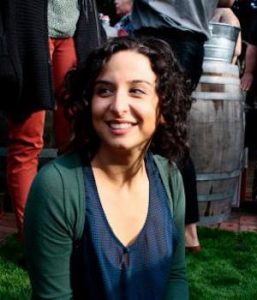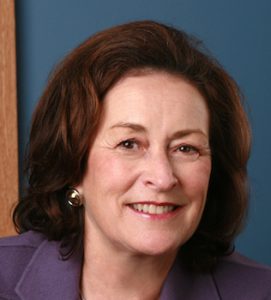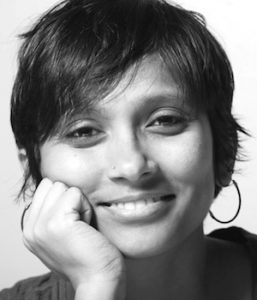Covering Sexual Harassment in Science: Journalists Weigh In On the Challenges

Photo: Sergey Zolkin/Unsplash
SAN FRANCISCO—When the sexual harassment case of astronomer Geoffrey Marcy of the Univerity of California, Berkeley, came across her desk at BuzzFeed News, science reporter Azeen Ghorayshi was well equipped to break the story. Buzzfeed’s newsroom and legal team had years of experience handling sexual assault and sexual harassment stories on university campuses.
Sexual harassment has moved under a brighter spotlight in the age of Harvey Weinstein and the #MeToo campaign. But covering these stories in academia presents unique challenges—as does reporting as a freelancer or in countries outside of the United States.
As a tidal wave of survivors’ voices expose the pervasiveness of this shady societal secret, journalists must be well-poised to report the stories in a legally defensible way. And it is critical, Ghorayshi said, to write stories that “are not dismissed as ‘he said, she said,’ but understood to be a lived experience.”
"If you are breaking the story and you mess that up, it immediately falls into a deep hole."
Ghorayshi spoke on 27 October at the World Conference of Science Journalists 2017 in a panel titled “The Challenges of Covering Sexual Harassment in Science.” Afterward, I sat down for a conversation with her and two other journalists: session moderator Cristine Russell, a veteran science policy reporter and current fellow at the Harvard Kennedy School; and Rhitu Chatterjee, editor at National Public Radio’s The Salt, who previously covered gender violence and sexual harassment as a New Delhi-based correspondent for Science and PRI’s The World.
For additional resources, see the WCSJ panelists’ Resource List as well as the Sexual Harassment of Women in Science presentation by Meg Urry, an astrophysicist at Yale University.
This conversation has been edited and condensed for space and clarity.
—How do you navigate the legalities of stories about sexual harassment within institutions?
Ghorayshi: One thing that’s helpful is having documents. Our lawyers [at Buzzfeed] flag things that could potentially stick out in a story. They will ask for four to five points of corroboration. It helps for reporting if you can get correspondence, even corroboration from things like texts and emails, showing that when these women experienced an uncomfortable [episode] and told their friends about it, it actually happened at the time they said it did.

Azeen Ghorayshi.
For the University of Washington case, we were able to FOIA [use the Freedom of Information Act] for literally millions of documents, which I am still receiving on CDs. But private schools like Caltech [the California Institute of Technology] have no requirement to provide documents to students, and certainly not to us.
Once we have done the fact-checking and the lawyers have approved everything, we send what’s called a “no surprises” letter to the people we are making any claims about. We do this for all legally sensitive stories. To [Geoffrey] Marcy, I sent a bulleted list of every single thing we said that he did in this story, down to small details. We do this a day or two before we are going to publish. And we say, “If you disagree with any of these statements, please get in touch with me.” You give them a chance to respond, but with a tight deadline.
Russell: That is the extra mile… if you have the time, that is a great strategy—especially if you are the first news organization breaking the story. If you are breaking the story and you mess that up, it immediately falls into a deep hole and you can lose credibility. It’s also important for reporters doing follow-up stories to ask for a comment from the alleged perpetrator.
Ghorayshi: Secondary stories are as legally liable [as breaking stories]. Sometimes people are sloppier with them because they assume the other person did due diligence, but you can still get sued.
—How much time does it take to report these stories?
Ghorayshi: It can take a while, up to three to five months.
Russell: It depends on the story and the outlet. This overview story [Confronting Sexual Harassment in Science] has been in the works for quite some time, but it was updated with the latest news just before publication.
Chatterjee: In my case, I had one day to report the Science story [about the former chair of the Intergovernmental Panel on Climate Change, Rajendra Pachauri]. I wasn’t breaking the story, but even for that I had to verify so many things. Is the trial happening? Did she go to the police? Did they file a charge sheet? Where is the statement? I have to talk to the cops, and especially when you are reporting in a country like India you often need face time. You have to try to speak to the alleged perpetrator. There is so much you have to make sure you have right.
—Who is responsible if an alleged perpetrator sues because of a story?
Chatterjee: [As a freelancer] it would have been on me.
Ghorayshi: That is so scary. When people ask me about freelancing these stories. . . I don’t know.

Cristine Russell.
Russell: Freelancers are vulnerable. But there are also a lot of outlets that are under-resourced; they don’t have lawyers. So to some degree, whether you are working with an institution or not, you’re pretty much responsible for the facts and the information to stand up.
Ghorayshi: Defamation suits are very difficult to fight. That means we have to be very careful with how we talk on Slack and email and texting. You can’t “go after” anyone. Talking on the phone and using [the encrypted texting app] Signal are great ideas.
—How do you get buy-in from the women/victims involved?
Ghorayshi: Going public with a story like this is a huge life choice. We all know that in science, reputation and relationships really determine your career. It’s a huge emotional burden for these women to carry.
I always offer to talk off the record first, just informally, so they can understand what the process of going public with a story is like. I can walk them through the steps that we will have to go through before we finally hit publish.
I also make clear from the beginning that I am a reporter, not an advocate or activist. I will have to tell the story, and all the shades of gray, with all the messiness that I see.
Getting people to use their names is always the hardest thing. It’s stronger when the women put their names out there, but it changes their lives forever.
Russell: It’s easier once they have left the institution where the harassment occurred. If you plan to stay at the university, it is tough.

Rhitu Chatterjee
Chatterjee: Covering this in other countries, you need to be very mindful of the law. In India the law requires the identity of the victim to be protected. Also, culturally, even though the silence around sexual violence is broken, ultimately, you [the victim] may still be an outcast.
Russell: Other countries don’t have these two solid laws to rely on, Title VII and Title IX [U.S. laws that provide protection against gender discrimination]. In countries without this type of law, it can be much more difficult.
Chatterjee: Even if you do have this kind of law you can still be held back by other archaic laws [like a law in India that allows alleged perpetrators to ask courts to issue a gag order on the media during an ongoing trial]. This is why victims in some countries never come forward, because they could be stuck in courts for 30 to 40 years.
—What would you say to a male journalist who might feel uncomfortable writing about these cases?
Ghorayshi: One of the best reporters on our national desk, Tyler Kingkade, reports on Title IX and campus sexual assault and does such a good job. It’s just a matter of being empathetic and knowing your facts. At that point it doesn’t matter whether you are a man or a woman.
Russell: There have certainly been far more women reporters covering sexual harassment stories. But for a certain part of the audience, having more men reporting on it affirms that it’s everyone’s issue.
—What kinds of stories should we be telling moving forward?
Chatterjee: It is important for all of these other stories around the cultural aspects of sexual harassment to be told. There are lots of stories to be done besides individual cases.
Ghorayshi: But there is something to be said, as well, for telling every woman’s story.
—
Liz Kimbrough is a graduate student at Tulane University researching endophytes—the microbes that live inside of plants. When she is not pipetting clear liquids into tubes, Liz has a passion for telling the stories of science—especially the tiny ones here on Earth. See Liz’s work at www.ripplewriter.com or follow her on Twitter @lizkimbrough_

